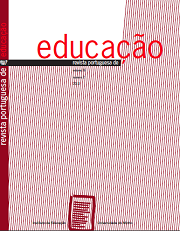Human rights: from theoretical possibility to practical (im)possibility in an age of inherent inequalities
DOI:
https://doi.org/10.21814/rpe.3249Abstract
This article questions the Universal Declaration of Human Rights, discussing why its universality is (im)possible and why it is important to reconfigure it to achieve universal recognition of a set of Human Rights so as to enable them to be implemented effectively. In this regard, the article proposes the creation of a minimum global common culture as a starting point to achieve a maximum global common culture which can enable the humanisation of societies. It will also discuss concepts considered to be fundamental and their implementation in the modern world, where social inequalities tend to become ingrained due to the social anaesthesia of the most vulnerable groups of society owing to the assumption of a fatalism rooted in ‘producers of consent’. These issues are the leitmotif and serve as a common thread for the articles which follow, together constituting the thematic nucleus of this issue of Revista Portuguesa de Educação.
Keywords
Human Rights; Inequality; Equality; Humanity
Downloads
Downloads
How to Cite
Issue
Section
License
1. The authors preserve their authorship and grant the Portuguese Journal of Education the right to the first publication. The work is licensed under Creative Commons Attribution License that allows sharing the work with the acknowledgment of initial authorship and publication in this Journal.
2. The authors have the right to take additional contracts separately, for non-exclusive distribution of the published version of their work (e.g. to deposit in an institutional repository or as a book chapter), acknowledging the initial authorship and publication in this Journal.
3. The authors have the permission and are stimulated to post their work online (e.g. in an institutional repository or on their personal website). They can do this at any phase of the editorial process, as it may generate productive changes, as well as increase impact and article citation (see The Open Citation Project).
The work is licensed under Attribution-ShareAlike 4.0 International (CC BY-SA 4.0)




















